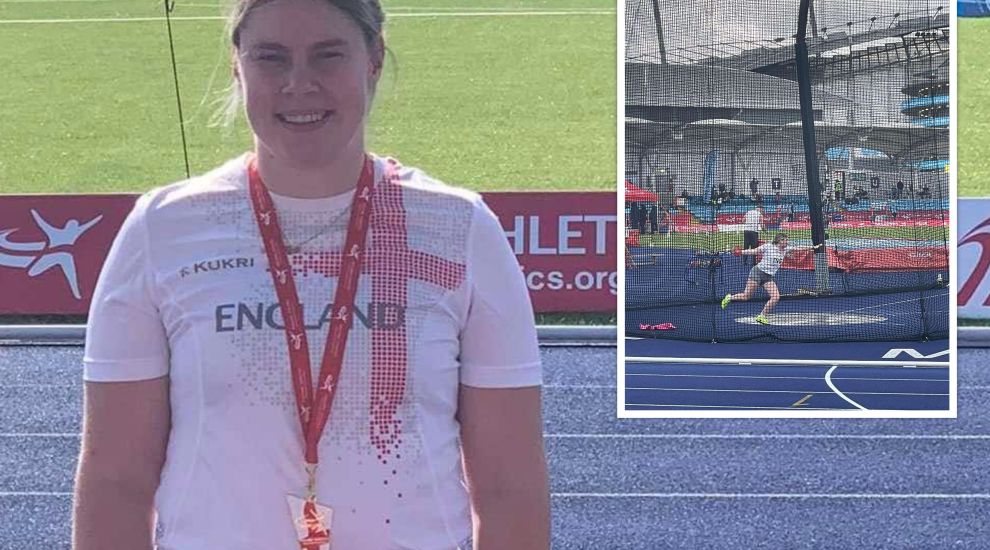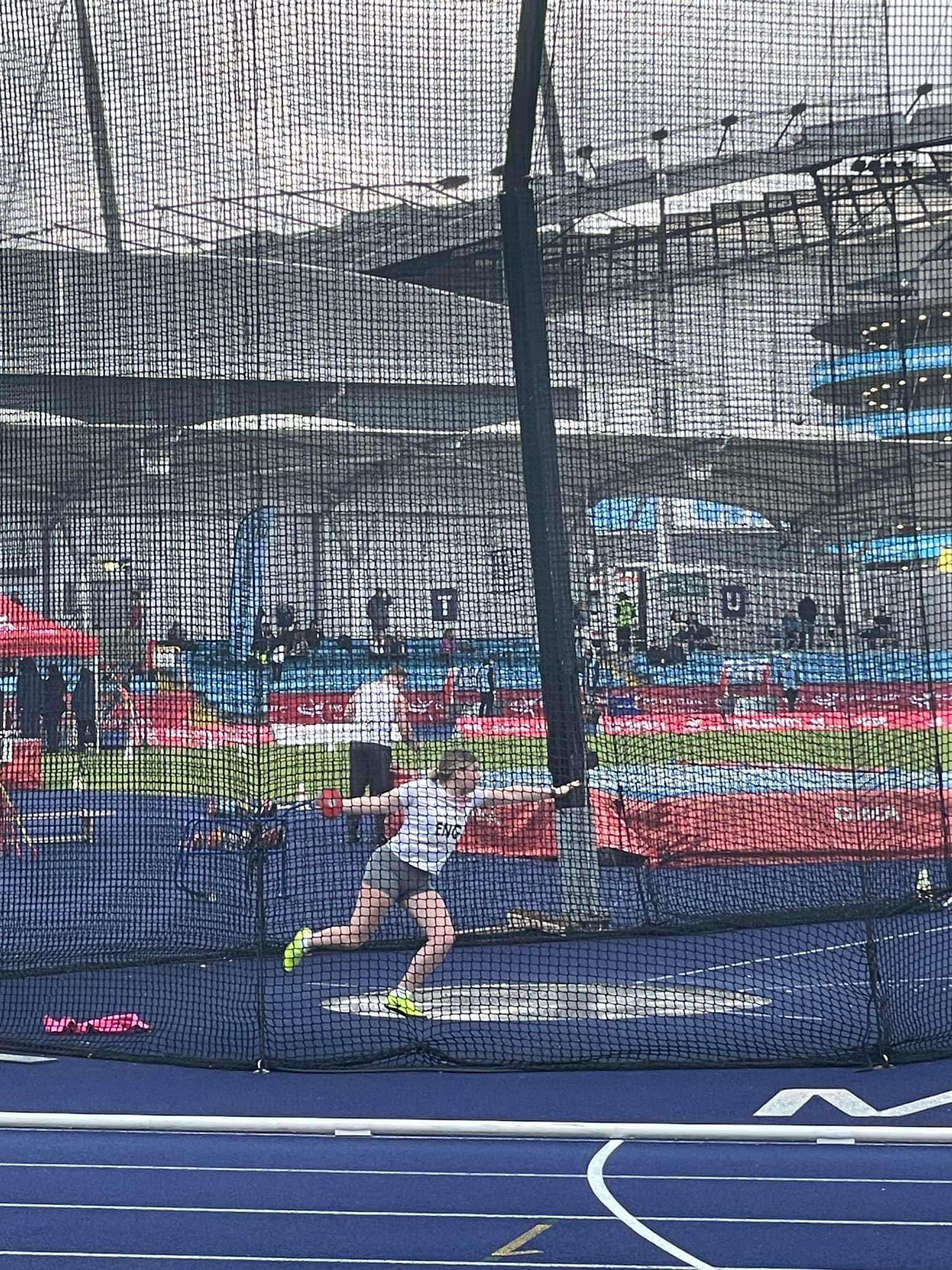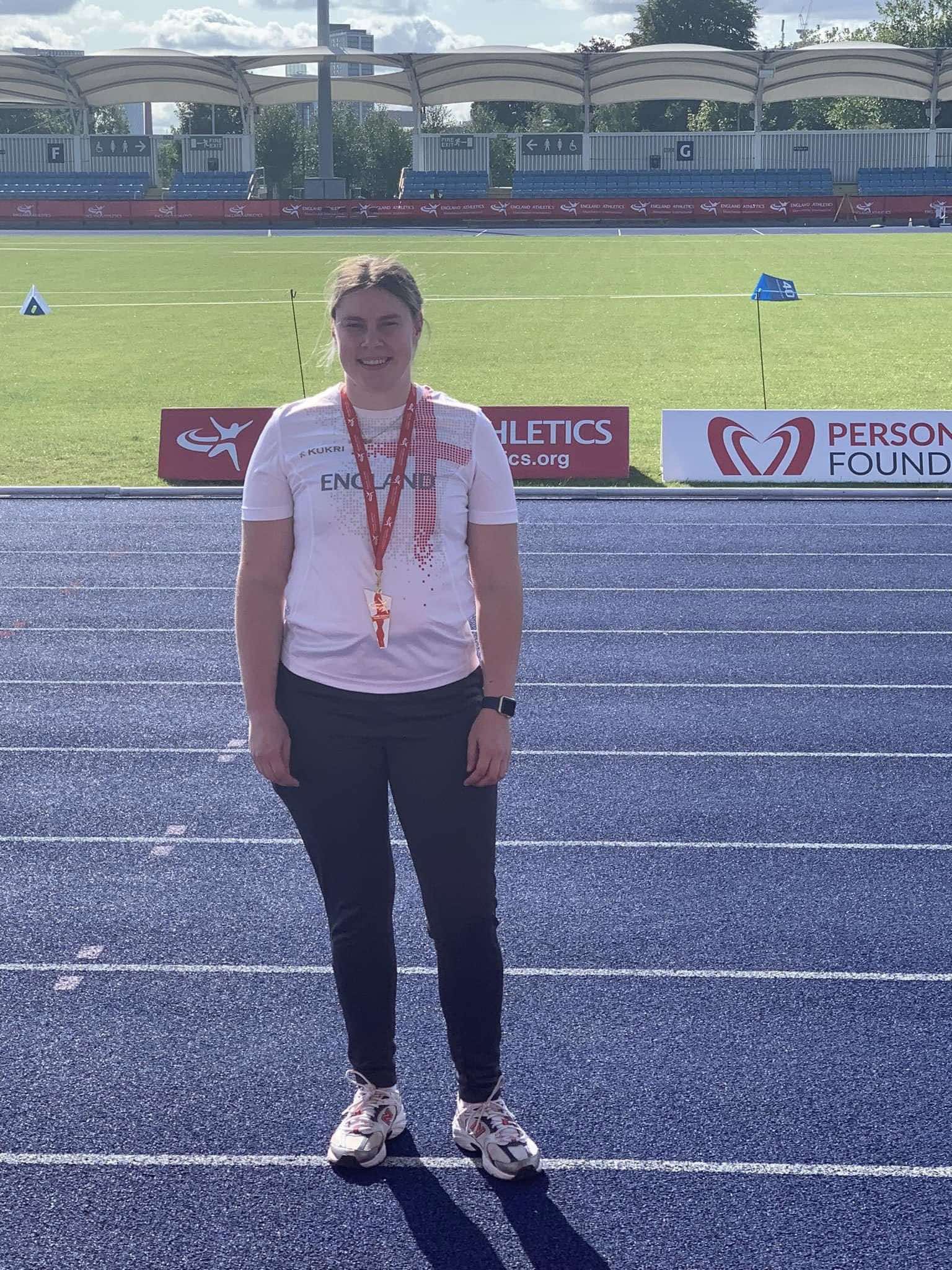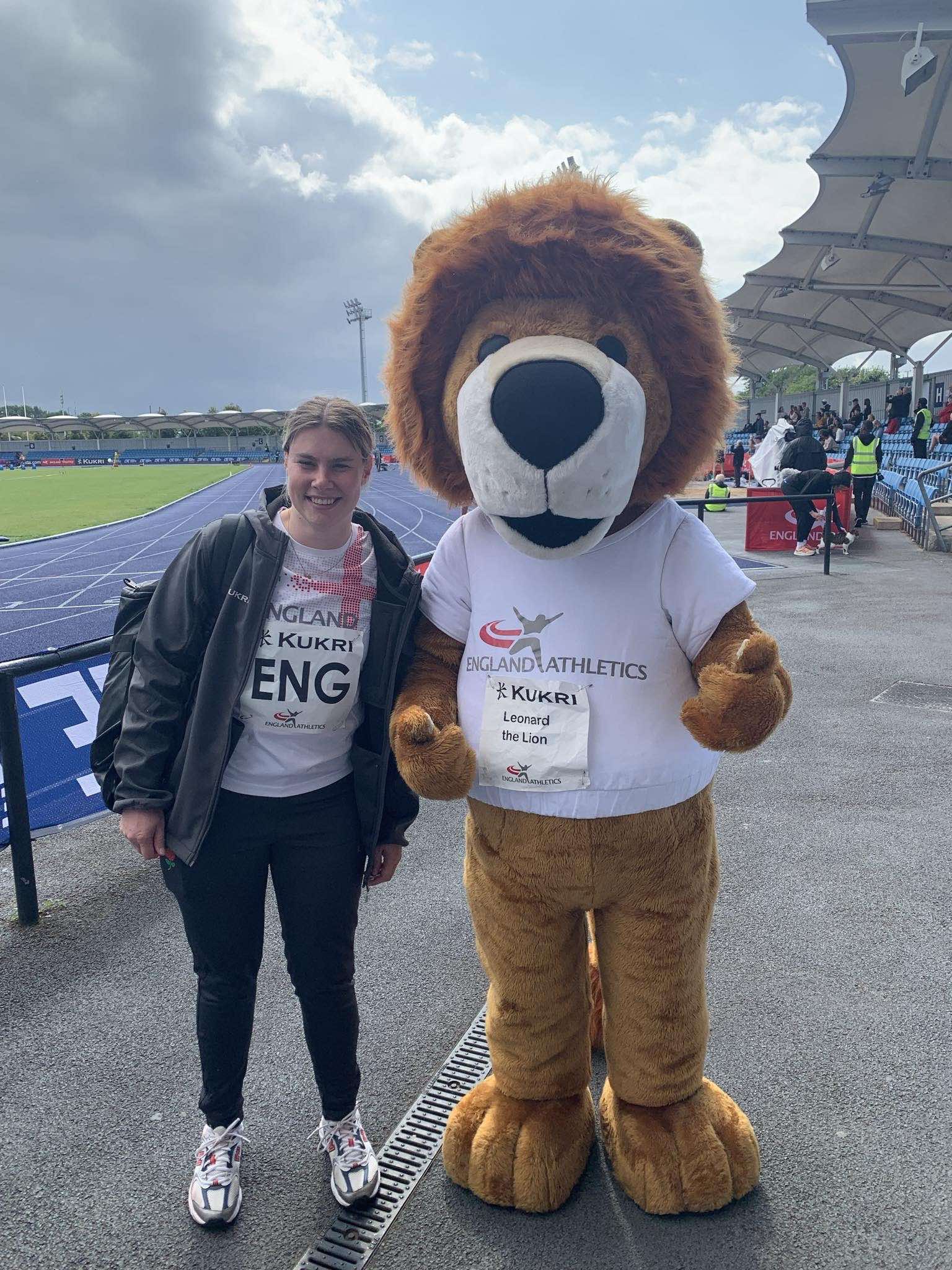

To celebrate and coincide with the Paralympic Games, Bailiwick Express is sharing the inspiring stories of local athletes who take part in accessible sport.
Taking place until 8 September, the Paralympic Games is an iconic and important sporting occasion that highlights and champions athletes from around the world.
Although none of the 215 athletes representing Great Britain at the 2024 Paralympics are from the Channel Islands, there may be one in Los Angeles in 2028...
Jersey para-discus thrower Rachel Leck is aiming to compete in the next Paralympic Games.
But it hasn't been a simple process to get where she is today.
Before becoming a para-discus athlete, Rachel – who has a mild form of Cerebral Palsy – competed in para-weightlifting.

Pictured: 28-year-old Rachel, who has a mild form of Cerebral Palsy, has had a difficult process with para classification.
She reached national level in the sport but, when she wanted to progress, Rachel faced rejection for "not being disabled enough".
She explained: "Cerebral Palsy athletes in powerlifting tend to be more severely affected in their legs.
"So that means the weight categories are a bit different so someone who has no weight in their legs and all the weight in their upper body is going to lift more than I can.
"You have to have a minimum of three on the Ashworth Scale, which is what they use to measure Cerebral Palsy."
Rachel continued: "I’ve got Cerebral Palsy, it’s there, but it’s not there enough to fall in the lifting Cerebral Palsy classification.
“I was really upset at the time, because I’d trained for years, went to nationals and then basically someone turned around and went ‘you’re not disabled enough’.”
But that only propelled Rachel and her coaches forward. If she couldn't classify for one event, she would find one that did.
That's when she discovered the varying range of impairments that were eligible in athletics.
“Athletics is unique because it caters for all degrees of impairments which means I can go into their F38 category," she said.

Pictured: Rachel represented England in this year's International meeting in Manchester.
Having now found her sport, the full-time accountant has excelled.
Even after a fractured ankle in her first year in the sport, she has now represented England in this year's International meeting in Manchester.
“Once I had classification I felt that sense of inclusion, which was completely the opposite feeling to when they said no at the para-powerlifting," she said.
Rachel said watching athletes in the F38 category at Paris 2024 is "really nice" – but hopes that this will be the last Paralympic Games she watches on TV.
“Seeing my category on the TV is nice because I can notice things about the athletes that a ‘normal’ person might not," she explained.
"In the way they walk and talk, it’s nice to see that all levels of impairment on that kind of stage."
Although her journey hasn't been the most simple, Rachel explained that her coach Cat Hallden from Spartan Athletics has been with her throughout.
Rachel said: "She came to my national classification competition because she wants to learn more about the process, which is a testament to Spartans because they want to coach all athletes, Para or not."
And a close relationship between coach and Para athlete is imperative to tailored sessions and performance.
“Cat can see things that affect my training, if I’m having a bad day or certain muscles aren’t working because I’m having a flare up," Rachel added.

Pictured: Rachel hopes her performance this year will get her selected for more international events.
Rachel's success is exciting for Jersey.
Having not had any representation at the Paralympics for 24 years, and never in athletics, she is a trailblazer for local athletes with disabilities.
But she thinks more can be done in Jersey to get people like her out there and competing.
“If I was 12 or13 again, I would have liked to have seen more open days and advertising," she said.
"Some people don’t necessarily want to have to say ‘I’m disabled’, especially when it’s not as obvious."
Rachel continued: “Spartans are good, because they have all age groups and provide opportunities for people to go away and get used to competition.
“Community projects are good to get people involved and moving but from an older age it’s more than just about health.
"You want to make sure there is a pathway for them to carry on and compete like everyone else.
“Jersey does have a pathway, and it isn’t like there’s no training or inclusion, but people see events and assume they're not included."
It's more training and big competitions now for Rachel if she is to make it to LA in four years time.
“LA would just be amazing, I don’t really have the words," she said.
"Especially because I went for a different sport and I had to deal with that rejection. But I’ve proved myself right that I can do it as much as everyone else.
“It’s getting used to the big competitions, the size and scale of the stadiums and knowing what to expect you get to the Paralympics.”
Comments
Comments on this story express the views of the commentator only, not Bailiwick Publishing. We are unable to guarantee the accuracy of any of those comments.